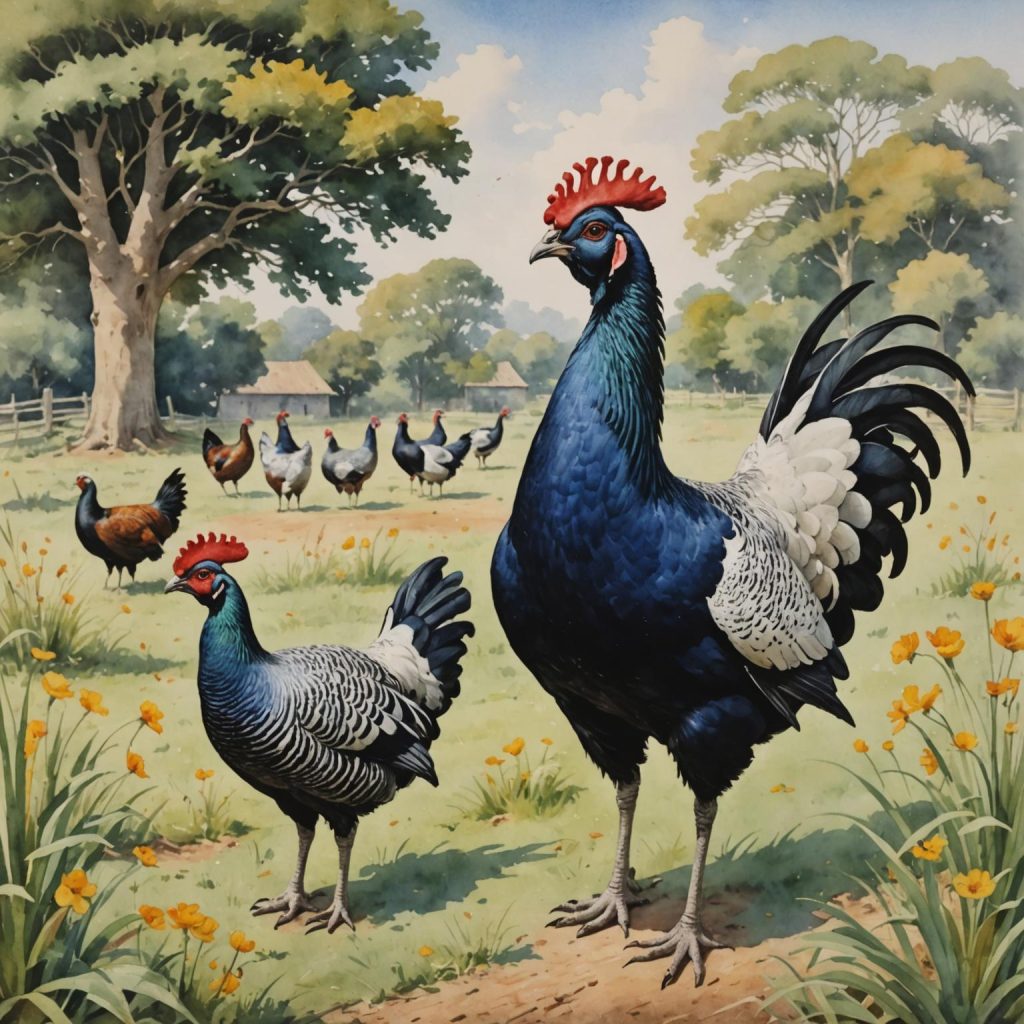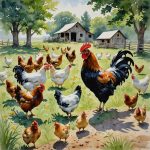Are you considering adding some feathered friends to your backyard flock? Guinea fowl just might be the perfect companions for your chickens. These quirky birds bring a unique charm to any poultry setup, while also providing added benefits to your overall flock health. In this article, we’ll explore the ins and outs of keeping guinea fowl wiht chickens, and how these two species can thrive together in harmonious coop harmony.
Table of Contents
Introduction
Guinea fowl and chickens can make great companions in the backyard, each bringing their own unique benefits to the flock. While they may have different personalities and habits, with proper care and management, these two bird species can coexist harmoniously.
One critically important factor to consider when keeping guinea fowl with chickens is their dietary requirements. Guinea fowl are primarily insectivores, while chickens are omnivores. It is important to provide a balanced diet for both species, including a mix of high-quality poultry feed, fresh greens, and grit for digestion. Additionally, guinea fowl are known for being excellent foragers, so providing them with access to the yard can definitely help keep pests in check. Integrating guinea fowl into an existing chicken flock can be a gradual process, allowing the birds to get acquainted with each other and establish a pecking order.
| Proper diet | High-quality poultry feed, fresh greens, grit |
| Foraging behavior | Great for pest control |
Co-habitating Chicken and Guinea Fowl: Benefits and Considerations
If you’re considering keeping guinea fowl with your chickens, there are a number of benefits and considerations to keep in mind. One benefit of co-habitating these two types of birds is that guinea fowl are excellent foragers and can help control pests in your chicken coop and surrounding area. They can also serve as an additional early warning system for predators,alerting your chickens to potential dangers.
However, there are also some considerations to keep in mind when keeping guinea fowl with chickens. Guinea fowl are known to be louder and more vocal than chickens, so if noise is a concern for you or your neighbors, this is something to consider. Additionally, guinea fowl have different dietary needs than chickens, so you’ll need to make sure they have access to the appropriate food and supplements to thrive alongside your chickens.
Managing Housing and Feeding for Chickens and Guinea Fowl
When it comes to keeping guinea fowl with chickens, there are a few critically important factors to consider in managing housing and feeding for both species. While chickens and guinea fowl can coexist harmoniously, it’s essential to create an surroundings that meets the needs of both birds.
Firstly, make sure to provide adequate shelter for both chickens and guinea fowl. This can be in the form of a shared coop or separate housing,depending on the size of your flock. Allow for plenty of space for both species to roost and nest comfortably. Additionally, ensure that the housing is secure to protect the birds from predators.
When considering keeping guinea fowl with chickens, it is indeed critically important to understand the social dynamics and interactions between these two types of poultry. Guinea fowl are known to be more aggressive and territorial compared to chickens, so it is crucial to introduce them gradually to ensure a peaceful integration within the flock. One way to do this is by providing separate feeding and watering stations for both guinea fowl and chickens to avoid any conflicts over resources.
Additionally, providing enough space and hiding spots within the coop or run can help reduce aggression and promote harmonious interactions between the guinea fowl and chickens. Monitoring their behavior closely during the integration process is essential to address any issues that may arise. with proper management and attention to the social dynamics of the flock, keeping guinea fowl with chickens can be a rewarding experience for poultry enthusiasts.
Q&A
Q: Can guinea fowl and chickens be kept together?
A: Yes, guinea fowl and chickens can be kept together in the same coop and run.Q: Are there any benefits to keeping guinea fowl with chickens?
A: Yes, guinea fowl can help protect chickens from predators such as hawks and other birds of prey.
Q: Do guinea fowl get along with chickens?
A: Guinea fowl can sometimes be aggressive towards chickens, so it’s important to monitor their interactions and make sure they have enough space.
Q: Do guinea fowl and chickens eat the same food?
A: Yes, guinea fowl and chickens can eat the same food such as grains, seeds, and insects.
Q: Do guinea fowl and chickens need the same housing?
A: Guinea fowl and chickens can share the same coop and run, but guinea fowl may need higher perches and more space to roost at night.Q: Do guinea fowl lay eggs like chickens?
A: Yes, guinea fowl do lay eggs, but they are typically smaller and have a harder shell than chicken eggs.
Q: Can guinea fowl and chickens breed together?
A: Guinea fowl and chickens can interbreed, but the offspring are usually infertile and may not survive. It’s best to keep them separate for breeding purposes.
Final Thoughts
keeping guinea fowl with chickens can be a beneficial arrangement for both species.By understanding their unique behaviors and needs, you can create a harmonious environment were they can thrive together. Remember to provide adequate space, shelter, and food for both guinea fowl and chickens to ensure their health and well-being. With a little patience and knowledge, you can enjoy the beauty and benefits of having these feathered companions in your backyard. Happy farming!
Meet Walter, the feathered-friend fanatic of Florida! Nestled in the sunshine state, Walter struts through life with his feathered companions, clucking his way to happiness. With a coop that’s fancier than a five-star hotel, he’s the Don Juan of the chicken world. When he’s not teaching his hens to do the cha-cha, you’ll find him in a heated debate with his prized rooster, Sir Clucks-a-Lot. Walter’s poultry passion is no yolk; he’s the sunny-side-up guy you never knew you needed in your flock of friends!







